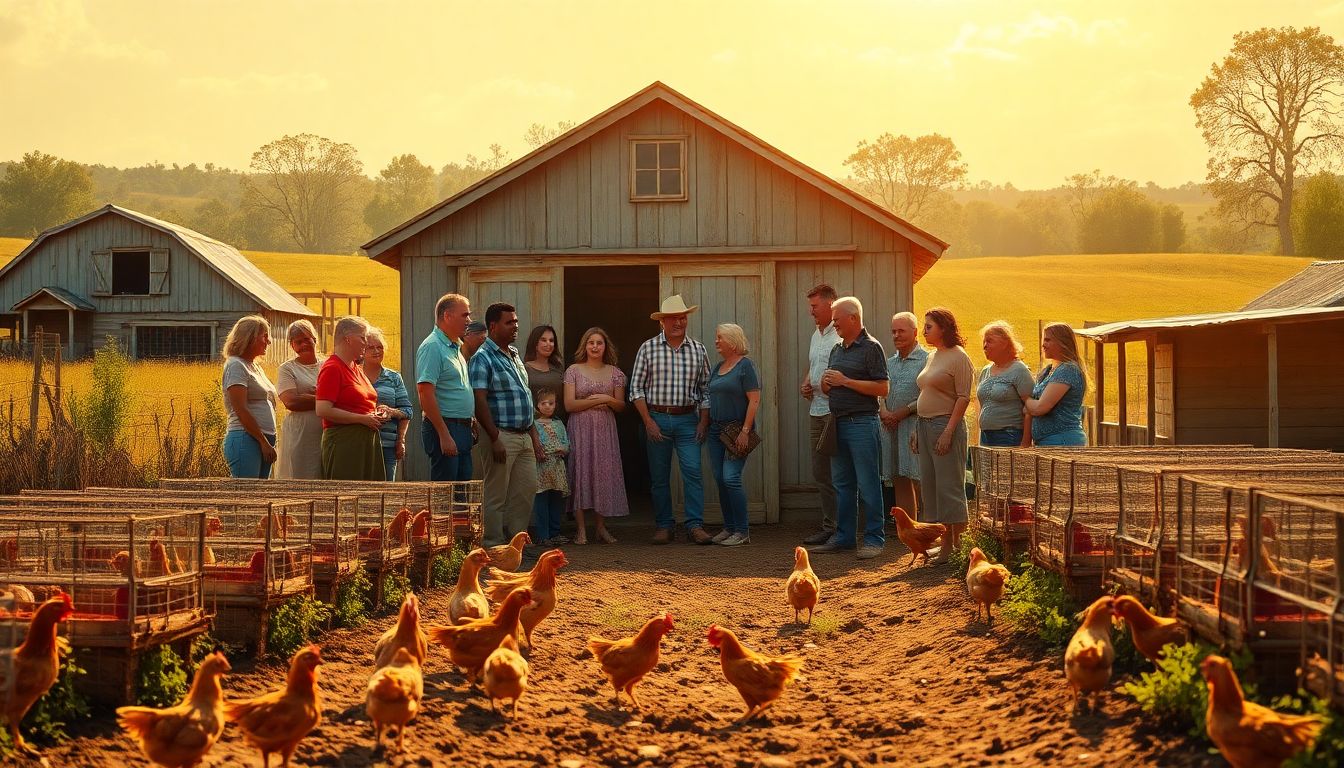
The outbreak of avian flu has negatively impacted a beloved family-run farm in the South Suburbs, leading to the tragic loss of nearly 3,000 hens. This event not only affects the family's livelihood but also stirs deep emotional distress within the community.
The Devastating Impact of the Avian Flu Outbreak
Initial Impact on the Hen Population: Specific Numbers of Hens Lost
The flu outbreak has wiped out nearly 3,000 hens on the farm, a shocking blow for a family that has dedicated years to raising these birds. The hen population served as a vital part of their business and community, supplying fresh eggs to local residents.
Emotional Toll on the Farming Family: Anecdotal Evidence of the Family's Distress
This loss has left the family devastated. One member described the heartache of watching their hens become sick, saying, “They’re not just birds; they’re part of our family.” Such feelings resonate with many who understand the bond between farmers and their livestock.
Immediate Actions Taken: Steps Taken by the Family in Response to the Outbreak
In response to the outbreak, the family has taken crucial steps. They contacted local agricultural agencies for advice and implemented biosecurity measures. They worked hard to sanitize their premises and safeguard their remaining birds.
Community Response: An Outpouring of Support
Fundraising Efforts: Details of Crowdfunding Campaigns or Community Drives
The community has come together to help. A crowdfunding campaign has raised thousands of dollars to support the family. Residents are sharing the campaign on social media, encouraging others to contribute.
Volunteer Assistance: Examples of Community Members Offering Practical Support
Volunteers from the community have offered their time and skills. Many have helped with rebuilding efforts, while others have organized meal deliveries to the family. This outpouring of kindness has provided some comfort during these tough times.
Donations of Supplies: Types of Donations Received (Feed, Equipment, Etc.)
Support has also been tangible. Local businesses have donated feed, equipment, and other essential supplies. This generosity is crucial as the family faces challenges in recovering their farm.
The Economic Impact on the Family Farm
Loss of Income: Estimated Financial Losses Due to Hen Mortality
The loss of 3,000 hens has led to significant financial losses. Estimates suggest the family could be facing a drop of thousands of dollars in revenue. This economic hit makes recovery imperative.
Challenges in Rebuilding: Obstacles the Family Faces in Restarting Their Operation
Rebuilding isn’t just about funding. The family must deal with emotional hurdles and logistical challenges. They need to figure out how to restock their flock and ensure the health of new birds.
Long-term Sustainability: Exploring the Farm's Future Viability
The long-term future of the farm remains uncertain. They are examining ways to diversify their operations. Exploring alternative income streams might prove necessary moving forward.
Avian Flu: Understanding the Threat
Spread and Prevention: Information on How Avian Flu Spreads and Prevention Methods
Avian flu spreads quickly, infecting both wild and domestic birds. Farmers must implement strict biosecurity practices, such as limiting visitors, sanitizing equipment, and monitoring bird health regularly.
Impact on the Poultry Industry: Broader Implications of Avian Flu Outbreaks
The poultry industry faces serious consequences from avian flu outbreaks. Prices of eggs and poultry could rise, affecting consumers nationwide. Many farmers are at risk, not just in this community.
Role of Government and Health Agencies: Government Support for Affected Farmers
Government agencies are monitoring the situation closely. They provide guidelines and support for affected farmers. Assistance is crucial for recovery, including potential financial aid and resources for disease management.
How You Can Help Support Local Farms
Supporting Local Businesses: Encouraging Consumers to Buy Locally
One of the best ways to help is by buying local. Purchasing from family farms supports the economy and strengthens communities.
Advocating for Policy Changes: Promoting Policies That Support Farmers
Engagement in advocacy efforts can make a difference. Calling for policies that help farmers impacted by avian flu can aid recovery and build resilience in the agricultural sector.
Educating Others: Sharing Information About Avian Flu and Its Impact
Awareness is critical. Sharing credible information about avian flu can help others understand its implications and promote preventive measures.
Looking Ahead: Resilience and Recovery
The Family's Plans: The Family's Vision for the Future of Their Farm
Despite recent hardships, the family remains hopeful. They plan to restart their flock and learn from this experience. Their vision includes expanding their farm’s offerings and strengthening community ties.
Lessons Learned: Insights Gained from the Experience
This experience has taught the family valuable lessons about preparedness and resilience. They understand the importance of community support and the need for proactive health measures.
Community Continued Commitment: The Long-term Support from the Community
The community has vowed to stand by the family. As they embark on their recovery journey, local residents continue to offer support, demonstrating the power of unity in times of hardship.
Community support plays a vital role in overcoming challenges. By rallying around local farms impacted by avian flu, we can help ensure that they thrive in the future. Advocate for policies that support farmers, buy locally, and share knowledge about avian flu. Together, we can make a lasting impact.
%20(4).jpeg)